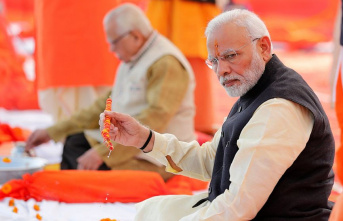The price of gasoline does nothing but reach historical records in recent weeks. While the price of a barrel of Brent oil, which serves as a reference in Europe, has returned to above 120 dollars, fuels are increasing their costs at a dizzying pace for the consumer who uses them regularly.
Gasoline has started this week reaching record highs again, with a price of €2,079/L and diesel A that stands at €1,943/L. A clear increase that is motivated by the veto of the European Union (EU) on the import of Russian crude oil, which could lead to a significant rise in the coming weeks, according to Reuters
.
There are already many months in a row of increases in the price of fuel. The measures imposed by the Government of Spain to try to stop it, such as the discount of 20 cents per liter introduced last April, have not particularly favored citizens, who continue to be affected by the situation. For its part, the Bank of Spain has urged the Government to withdraw tax rebates on fuel and electricity bills
[How to locate the nearest and cheapest gas stations]
But why does the price of gasoline continue to rise? How long will this increase in the cost of fuels that plagues the entire world continue?
At a time of uncertainty like this, while gasoline continues to increase in price, you have to look at the reasons that are causing this mess. One thing that is clear is that this considerable increase in the price of gasoline is directly related to the coronavirus pandemic and the war in Ukraine.
The reactivation of the economy after months affected by the stoppage caused by the Covid has been one of the reasons for this rise in the cost of fuel. After this period of almost complete stoppage in many sectors and the return to face-to-face work in some of them, the demand for fuel is now much higher.
The recent conflict between Ukraine and Russia has also aggravated the consequences of this price increase. The country governed by Vladimir Putin produces 10% of the planet's oil, so the war and the position adopted by the European Union regarding the total veto of Russian oil has also served to make a barrel of crude oil more expensive in all territories Europe and also in our country.
Added to this is also the latest announcement by the Organization of Petroleum Exporting Countries (OPEC) to compensate for the drop in Russian sales due to economic sanctions and to contain prices. Although this organization has agreed to increase production above the 432,000 barrels per day forecast for months to 648,000 barrels in July and August, the announcement of this measure has only served to increase the price of oil.
At the moment, it seems that the increase in the price of gasoline has no deadline and we will continue to experience it in the short term. As long as the demand continues to be greater than the crude oil inventory held, the normal thing is that the cost of fuel continues to rise.
That is why the economic recovery of the countries and how it progresses in the coming year may be key in the process of falling prices. Experts predict so far that at least it will continue this year.
In turn, over the coming months we will have to be very attentive to the progress of the situation in Ukraine, which right now is being one of the main factors behind this sharp rise in energy prices in Europe. We will have to wait for the conflict to stabilize to know if the rise continues.








